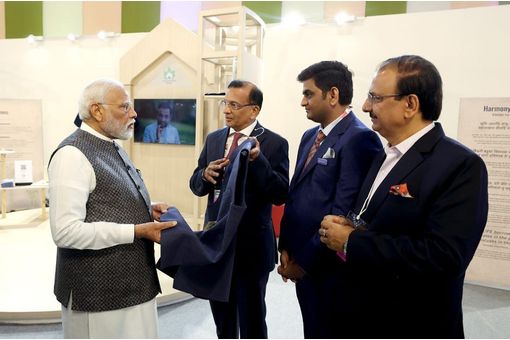Interviews
Global labour market heading for insecurity: ILO
20 May '15
2 min read
Only one quarter of workers worldwide is estimated to have a stable employment relationship, according to a new report by the International Labour Organization (ILO).
The report titled World Employment and Social Outlook 2015 (WESO) finds that, among countries with available data (covering 84 per cent of the global workforce), three quarters of workers are employed on temporary or short-term contracts, in informal jobs often without any contract, under own-account arrangements or in unpaid family jobs.
Over 60 per cent of all workers lack any kind of employment contract, with most of them engaged in own-account or contributing family work in the developing world. However, even among wage and salaried workers, less than half (42 per cent) are working on a permanent contract.
The first edition of the new, annual flagship report, entitled ‘The Changing Nature of Jobs’, shows that while wage and salaried work is growing worldwide, it still accounts for only half of global employment, with wide variations across regions. For example, in the developed economies and central and south-eastern Europe, around eight in ten workers are employees, whereas in south Asia and sub-Saharan Africa the figure is closer to two in ten.
Another current trend is the rise in part-time employment, especially among women. In the majority of countries with available information, part-time jobs outpaced gains in full-time jobs between 2009 and 2013.
“These new figures point to an increasingly diversified world of work. In some cases, non-standard forms of work can help people get a foothold into the job market. But these emerging trends are also a reflection of the widespread insecurity that’s affecting many workers worldwide today,” said ILO Director-General Guy Ryder.
“The way forward is to ensure that policies take into consideration the evolution of how we work today. This means stimulating investment opportunities to boost job creation and productivity, while ensuring adequate income security to all types of workers, not just those on stable contracts,” said Ryder.
Income inequality is increasing or remains high in the majority of countries – a trend that is aggravated by the rising incidence of non-permanent forms of employment, growing unemployment and inactivity. The income gap between permanent and non-permanent workers has increased over the past decade. (SH)
The report titled World Employment and Social Outlook 2015 (WESO) finds that, among countries with available data (covering 84 per cent of the global workforce), three quarters of workers are employed on temporary or short-term contracts, in informal jobs often without any contract, under own-account arrangements or in unpaid family jobs.
Over 60 per cent of all workers lack any kind of employment contract, with most of them engaged in own-account or contributing family work in the developing world. However, even among wage and salaried workers, less than half (42 per cent) are working on a permanent contract.
The first edition of the new, annual flagship report, entitled ‘The Changing Nature of Jobs’, shows that while wage and salaried work is growing worldwide, it still accounts for only half of global employment, with wide variations across regions. For example, in the developed economies and central and south-eastern Europe, around eight in ten workers are employees, whereas in south Asia and sub-Saharan Africa the figure is closer to two in ten.
Another current trend is the rise in part-time employment, especially among women. In the majority of countries with available information, part-time jobs outpaced gains in full-time jobs between 2009 and 2013.
“These new figures point to an increasingly diversified world of work. In some cases, non-standard forms of work can help people get a foothold into the job market. But these emerging trends are also a reflection of the widespread insecurity that’s affecting many workers worldwide today,” said ILO Director-General Guy Ryder.
“The way forward is to ensure that policies take into consideration the evolution of how we work today. This means stimulating investment opportunities to boost job creation and productivity, while ensuring adequate income security to all types of workers, not just those on stable contracts,” said Ryder.
Income inequality is increasing or remains high in the majority of countries – a trend that is aggravated by the rising incidence of non-permanent forms of employment, growing unemployment and inactivity. The income gap between permanent and non-permanent workers has increased over the past decade. (SH)
Fibre2fashion News Desk – India
Popular News
Leave your Comments
Editor’s Pick
Andreas Rass
ZIMMER AUSTRIA | Digital Printing Systems
































-Ltd..jpg?tr=w-120,h-60,c-at_max,cm-pad_resize,bg-ffffff)





.jpg?tr=w-120,h-60,c-at_max,cm-pad_resize,bg-ffffff)
.jpg?tr=w-120,h-60,c-at_max,cm-pad_resize,bg-ffffff)






